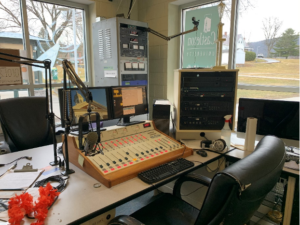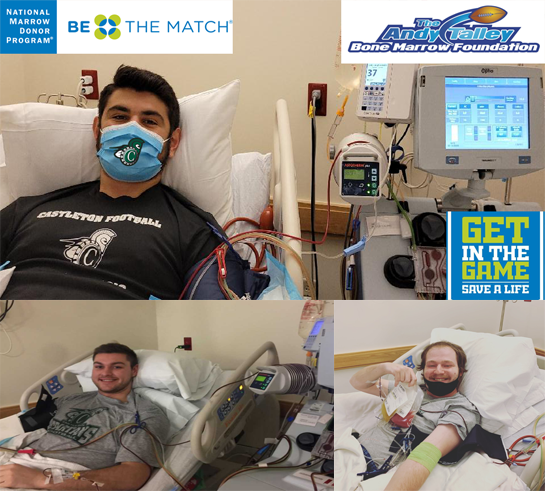Radio station reviving

Clubs on campus are experiencing hardships and declines in participation as the pandemic limits in-person gatherings and hands-on activities.
Castleton Internet Radio is no exception and its transition from FM to internet broadcasting has also seemed to have an effect on student involvement.
Senior Toné Sawyer, a member of the station since 2013, has seen a decline in participation since the station’s transition to internet broadcasting.
“When it was on FM, there were close to 20 students in our club, but now there are about 12,” Sawyer said.
In past years, the station had students share music and cover a variety of campus events.
“We used to cover live sporting events in the press box. I used to create advertisements for various campus events, SOS applications, Soundings and CAB events,” Sawyer said.
Student participation may have declined, but the station is enjoying new benefits since its transition.
“It has given us more freedom to play certain songs and say certain things. Before we were regulated, but now certain words slip out and it’s not as big a deal,” Sawyer said.
Dean of Students Dennis Proulx is a former advisor of the radio station and has also noticed the decline in participation.
“I think students in media or communication don’t necessarily gravitate to radio. It’s just not something they see as the way they get their content delivered,” Proulx said.
On the other hand, internet radio seemed to be more appealing due to its accessibility.
“You get a bigger audience by going to internet. It was the way of the future,” Proulx said.
Unlike other media outlets available to the Castleton community, the radio station is farther away from other areas on campus. Being in the Campus Center, it is not near other academic buildings, such as Leavenworth Hall, where the Spartan newspaper is produced.
“One of the benefits of the Spartan is there are specific classes targeted for that content,” said Proulx, explaining that a lack of radio classes may contribute to the lack of participation.
“Right now it’s an underutilized asset. It has been a greatly utilized asset, it’s just on a down slope coming back up,” Proulx said.
Freshman Christina Beatty, another member of the station, has enjoyed her time being part of the club.
“I talk about my review of films, things I’m excited about for the week, weather, anything I think people would be interested in,” Beatty said.
Like other clubs, Beatty found out about the radio through emails about campus clubs. She, like others, talked about a lack of involvement.
“It’s a little bit harder because of the pandemic. I don’t think they’re advertising as much,” Beatty said.
Michael Talbott, current advisor of Castleton Internet Radio, said he has heard of the concerns regarding a decline in participation and understands the appeal of other media outlets over that of radio.







